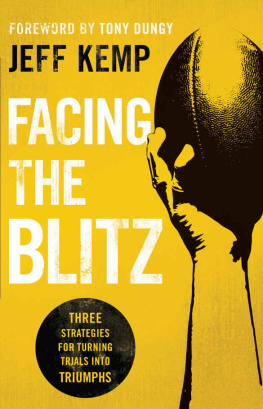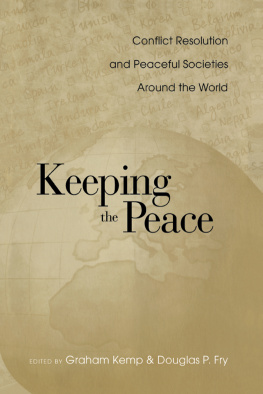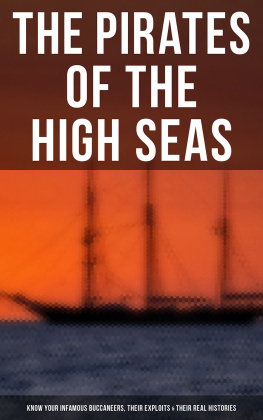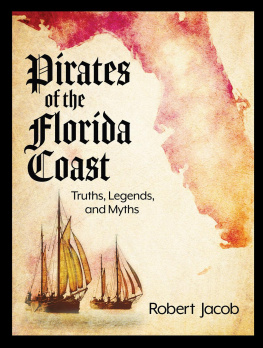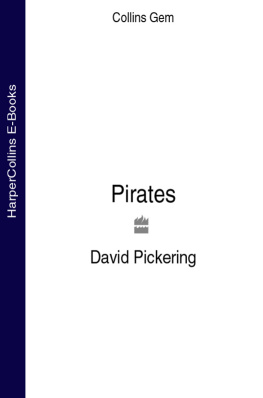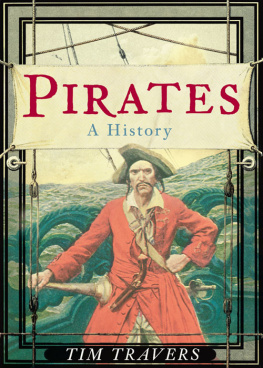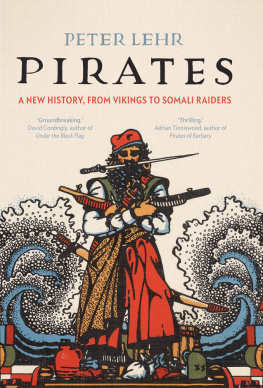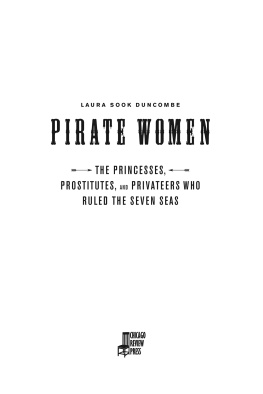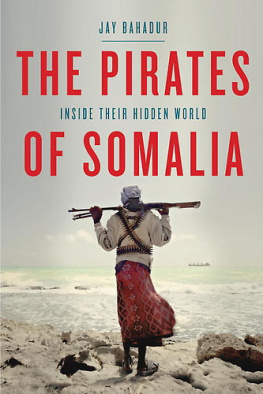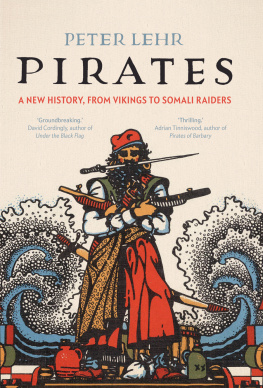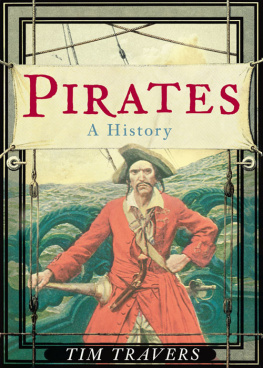Pirates
ROSS KEMP
MICHAEL JOSEPH
an imprint of
PENGUIN BOOKS
MICHAEL JOSEPH
Published by the Penguin Group
Penguin Books Ltd, 80 Strand, London WC2R 0RL , England
Penguin Group (USA) Inc., 375 Hudson Street, New York, New York 10014, USA
Penguin Group (Canada), 90 Eglinton Avenue East, Suite 700, Toronto, Ontario, Canada M4P 2Y3 (a division of Pearson Penguin Canada Inc.)
Penguin Ireland, 25 St Stephens Green, Dublin 2, Ireland (a division of Penguin Books Ltd)
Penguin Group (Australia), 250 Camberwell Road, Camberwell, Victoria 3124, Australia (a division of Pearson Australia Group Pty Ltd)
Penguin Books India Pvt Ltd, 11 Community Centre, Panchsheel Park, New Delhi 110 017, India
Penguin Group (NZ), 67 Apollo Drive, Rosedale, North Shore 0632, New Zealand (a division of Pearson New Zealand Ltd)
Penguin Books (South Africa) (Pty) Ltd, 24 Sturdee Avenue, Rosebank, Johannesburg 2196, South Africa
Penguin Books Ltd, Registered Offices: 80 Strand, London WC2R 0RL , England
www.penguin.com
First published 2009
Copyright Ross Kemp, 2009
Photography courtesy of British Sky Broadcasting Limited
The moral right of the author has been asserted
All rights reserved
Without limiting the rights under copyright reserved above, no part of this publication may be reproduced, stored in or introduced into a retrieval system, or transmitted, in any form or by any means (electronic, mechanical, photocopying, recording or otherwise), without the prior written permission of both the copyright owner and the above publisher of this book
ISBN: 978-0-14-193193-7
Where there is a sea, there are pirates.
Greek proverb
It is when pirates count their booty that they become mere thieves.
William Bolitho
The sea was so vast. The vessels they sailed in were small. Yet still the [pirates] tracked them down
Linda Colley, Captives
PART 1
The Gulf of Aden
1. Them That Diell Be the Lucky Ones
Why pirates?
It is a good question, and one a lot of people asked me as I started to make preparations to investigate this dangerous world about which I knew almost nothing. Id seen the newspaper reports, of course. I knew piracy was on the up. But I was also fresh out of Afghanistan. Over the previous couple of years Id spent time in that dangerous war zone; Id had Taliban snipers zeroing in on me, doing their best to kill me. Id probably have been forgiven for taking it a bit easy.
Life doesnt work out like that, unfortunately. In January 2009 I was in Kajaki one of the northern outposts of Helmand Province and scene of some of the fiercest fighting in Afghanistan. While I was there, a Marine by the name of Travis Mackin lost his life in an improvised explosive device strike near where I was accompanying his colleagues during an attack on a major Taliban stronghold. I suppose it goes without saying that I was impressed with the professionalism and tenacity of the Marines I met on that trip, and honoured to be accepted into their confidence. What I didnt know at the time was that in another part of the world the final act of a crime on the high seas was being played out, where the Royal Marines had been deployed in a very different conflict to that which the men at Kajaki were enduring. That crime was the hijacking of an oil tanker, the MV Sirius Star.
The Sirius Star is a big boat. A very big boat. Its classed as a VLCC a very large crude carrier. You can say that again: well over 300 metres long, it can carry 2.2 million barrels of crude oil. How much that amount of black gold is worth depends on the value of oil, but even back then, with the world economy in free fall, the Sirius Stars cargo would have been worth at least $100 million. As it set out from Saudi Arabia in November 2008, it was carrying about a quarter of that countrys daily output of oil.
On 15 November 2008 the Sirius Star was heading south, 400 nautical miles from the coast of Kenya. Its destination: the United States. Its route: round the southern tip of Africa, past the Cape of Good Hope and then north-west across the Atlantic. Its easy to imagine that as the vessel passed through the waters off the eastern coast of Africa, its crew, while not being blas, would at least have been reasonably confident of the ships security. Sure, piracy was already a problem, but the incidents had generally taken place further north, in the Gulf of Aden. Moreover, ships of this size were generally safe. Surely just getting onto the boat would be nigh-on impossible. Youd need a brass neck, balls of steel and a very long ladder to attempt to hijack such a massive vessel. Wouldnt you?
If these were the thoughts of the Sirius Stars owners and crew, they were mistaken. Because on that Saturday morning, at about 08.55, the boat was boarded by Somali pirates. They didnt mess around. By 09.02 the pirates had control of the bridge. The Sirius Star was so weighed down by its massive load of oil that its freeboard the height between the deck and the waterline was low. The crew, including two Britons, were taken hostage and the ship was diverted from its original course, back up towards the Somali coastline. A couple of days later the pirates opened up communications with the ships owners. They demanded a ransom of $25 million. The hijackers clearly knew the value of their haul, and were prepared to milk it for every last cent.
The eyes of the world were on the Sirius Star, but the hijackers held their nerve. They even released an audio tape to Al-Jazeera, the Middle Eastern news network. Negotiators are located on board the ship and on land. Once they have agreed on the ransom, it will be taken in cash to the oil tanker. We assure the safety of the ship that carries the ransom. We will mechanically count the money and we have machines that can detect fake money. These pirates, then, were well organized and professional. They knew what they were doing.
The hostages were not mistreated. One of the Britons, Peter French, even managed to conduct an interview by phone. Our families dont have too much to worry about at the moment, he said. Apart from the inconvenience of being locked up, our life is not too bad. Nothing like a good British stiff upper lip. But if I were in his position, I imagine Id be giving a great deal of thought to what would happen if the ransom wasnt paid. Would the pirates continue to be quite so considerate, or would they find a use for the automatic weapons they were carrying? As one of the pirates stated when they captured the vessel, We do not want long-term discussions to resolve the matter. The Saudis have ten days to comply, otherwise we will take action that could be disastrous.
Disastrous for whom, I wonder
The British government announced that there was no way theyd pay the ransom: giving in to hostage-taking was just an encouragement for people to do it again. The Sirius Star s Saudi owners took a more pragmatic view. Not only were the 25 crew members their responsibility, they also had 100 million bucks to protect. And so the ransom negotiations started. They were long and drawn-out. On 25 November the pirates reduced their demand to $15 million. By January, it had come down even further. On 9 January 2009 the ship was released after the pirates received 3 million dollars. Sounds like a lot of money, but just think about what the shipowners had to lose
A small plane dropped the ransom onto the deck of the Sirius Star by parachute. The pirates presumably checked the notes using the machines of which they had boasted, then they left the ship as swiftly as they had boarded it. The ending, however, was not a happy one for the Somali hijackers. Days after they left, their small boat apparently got into trouble in a storm. It capsized and five of the eight were drowned. A rumour later stated that the body of one was washed ashore with $150,000 in cash shoved into a plastic bag. What happened to the remaining three isnt clear. I guess they wouldnt be parading their presence any more than they had to stepping into Somalia and announcing you have hundreds of thousands of dollars cant be good for your health. But I would later be told totally unofficially, of course that a team of private mercenaries had followed the hijackers, retrieved a large proportion of the money, capsized their boat and left the pirates for the fishes. Fact or rumour? Who knows


